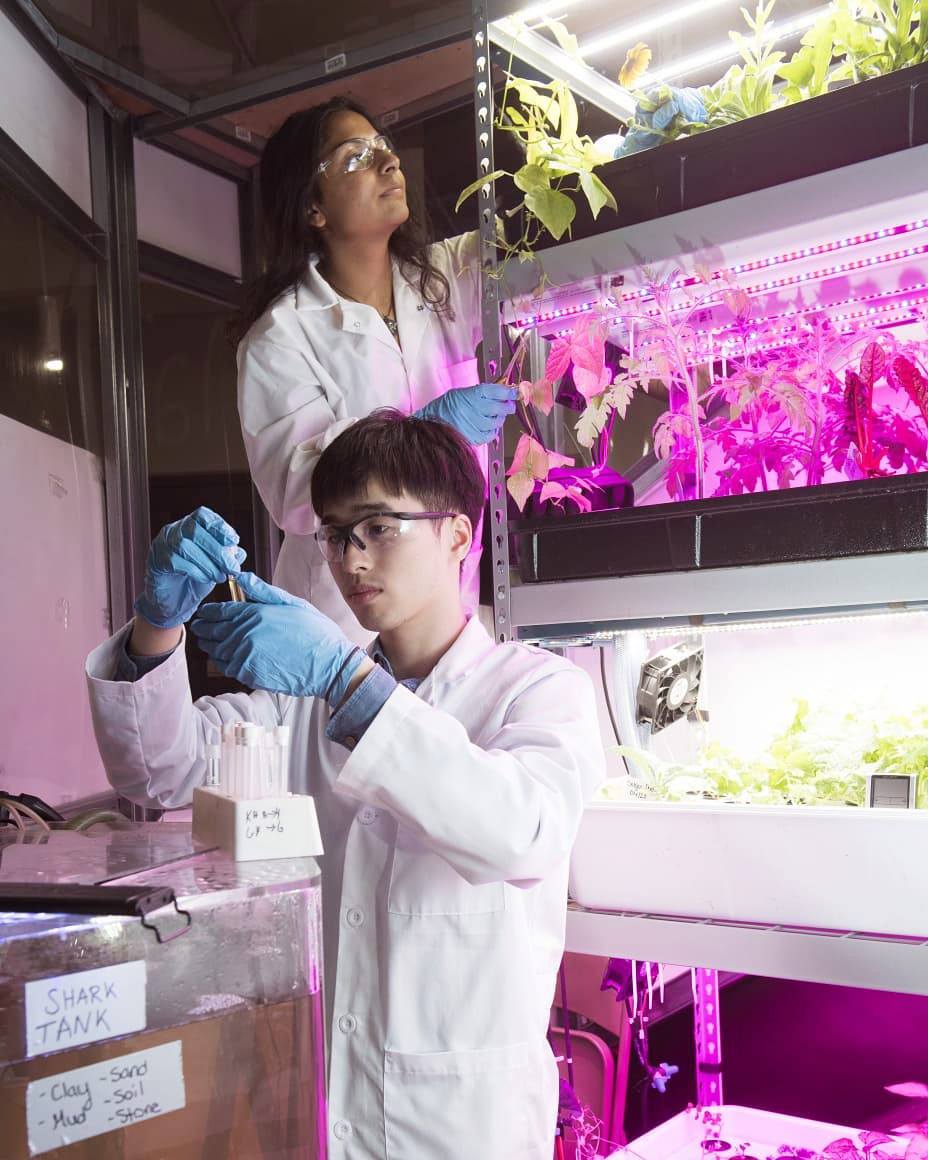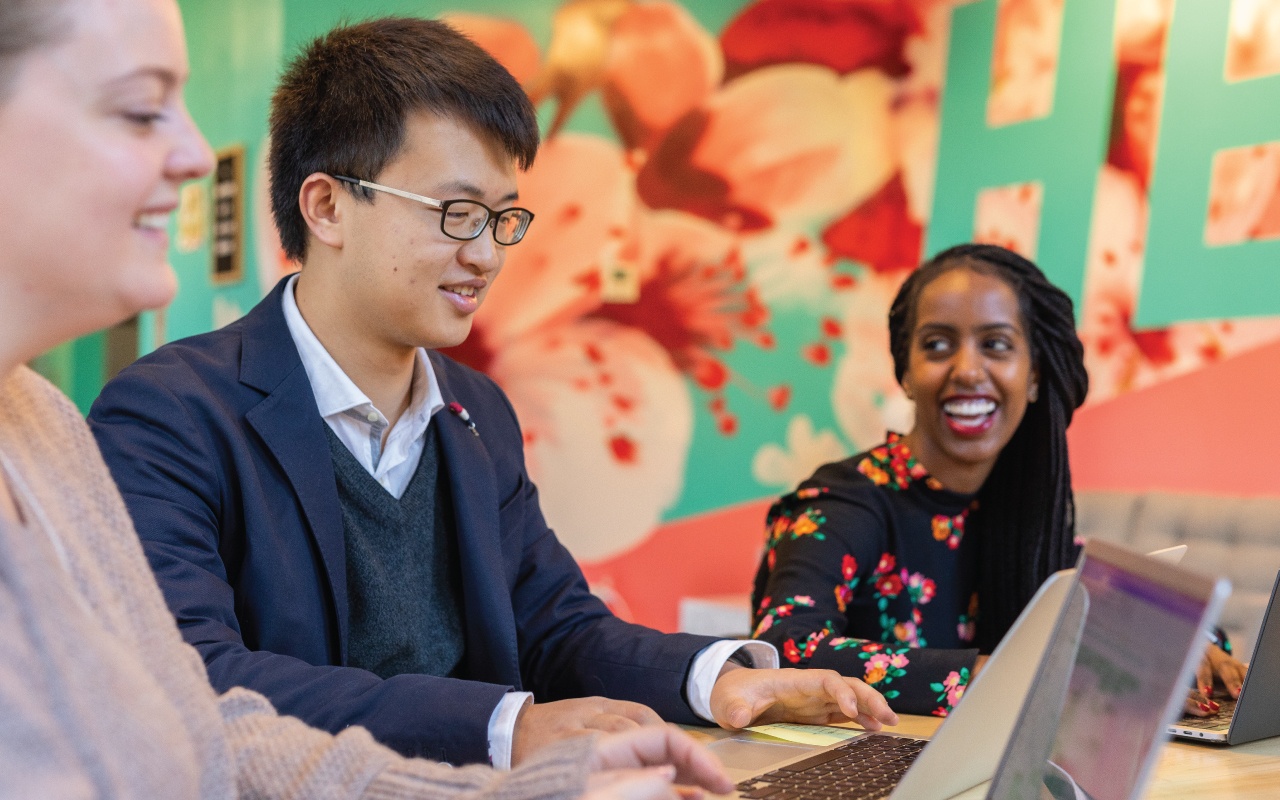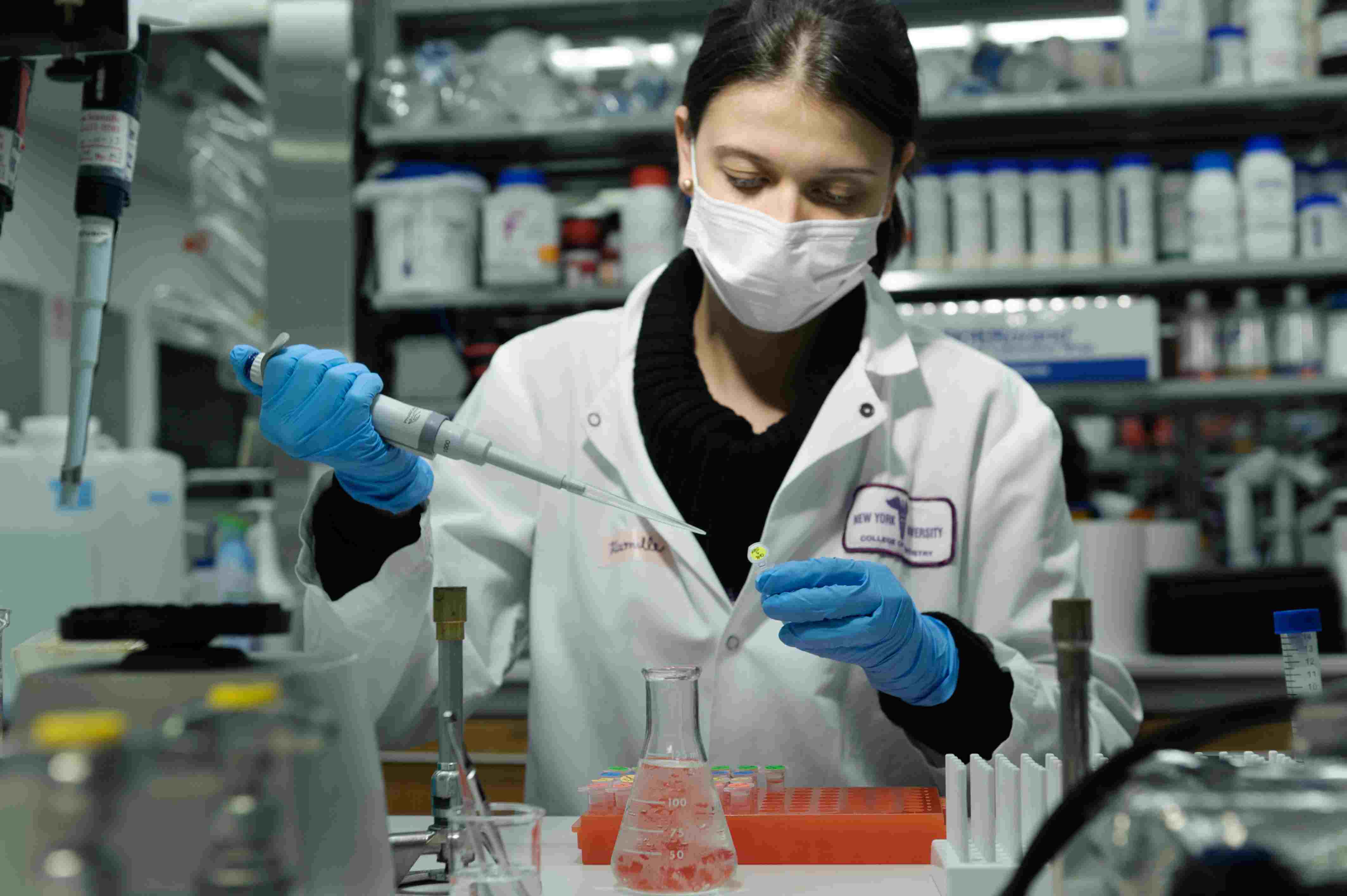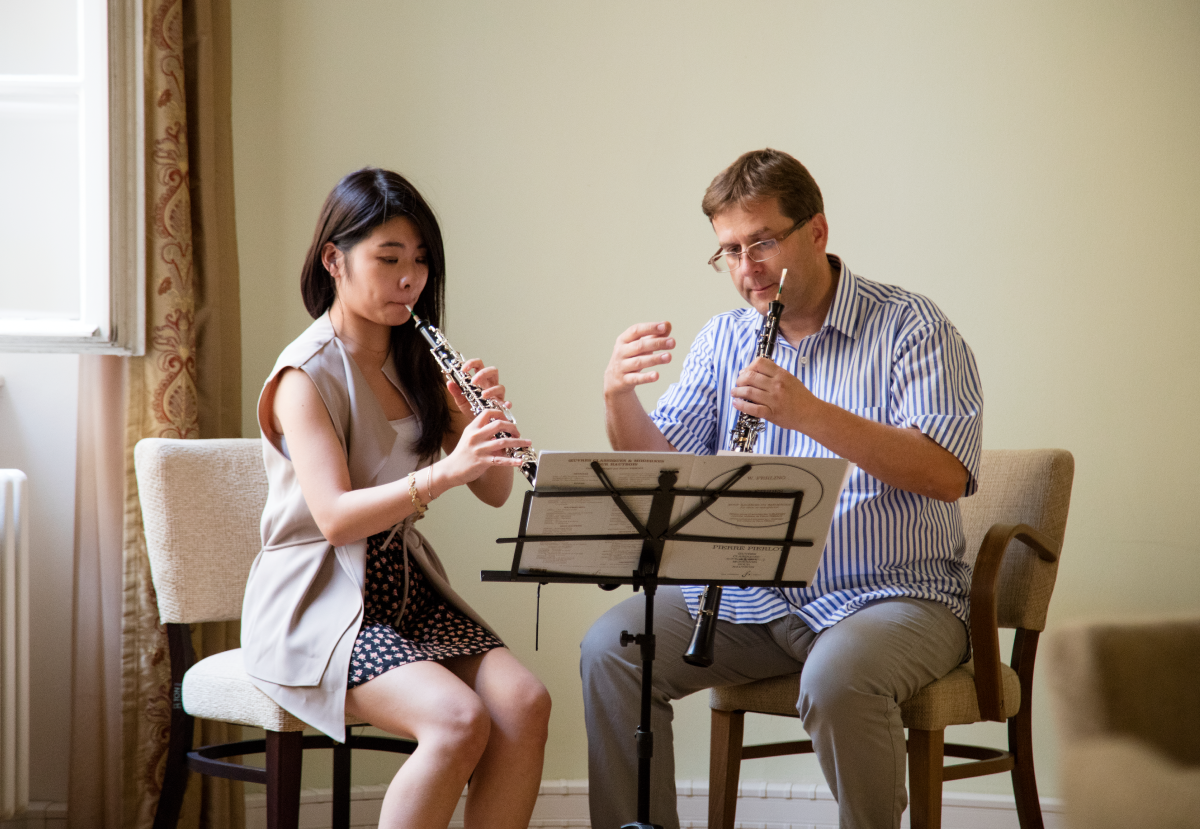
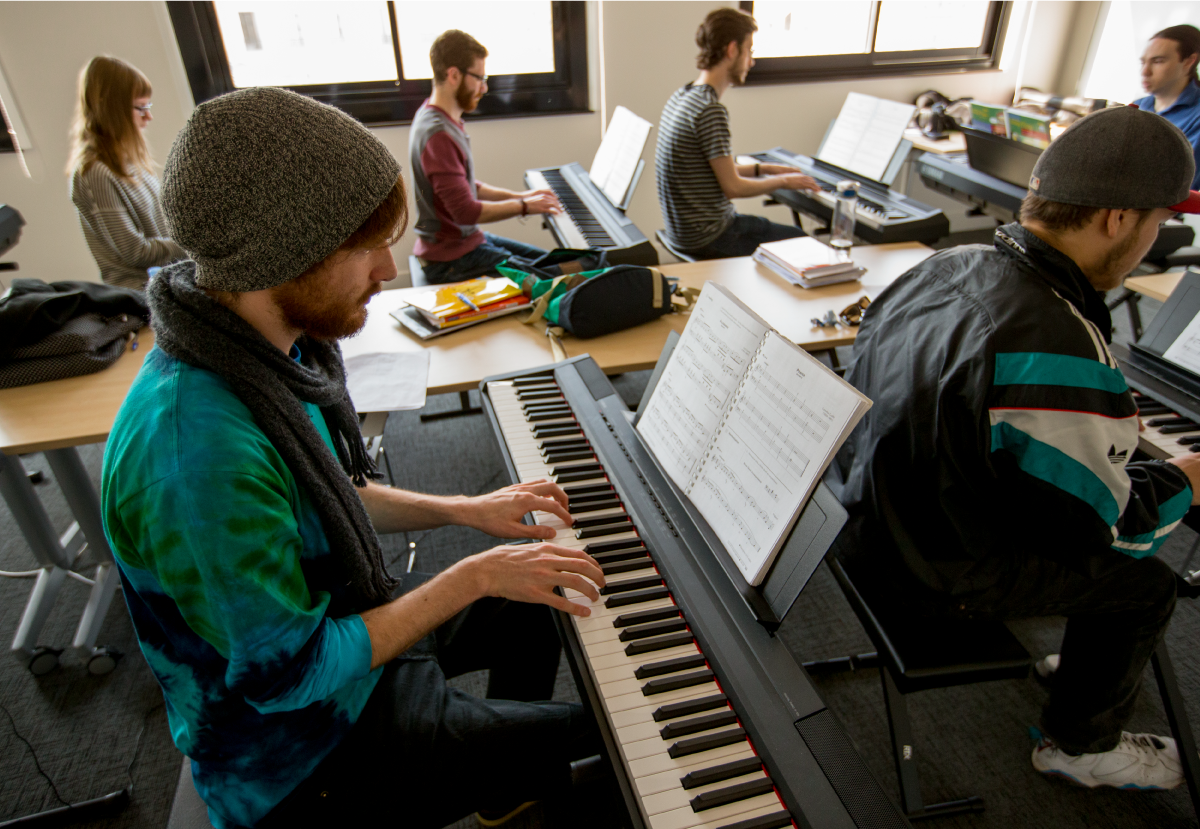
Across NYU, both world-class faculty and graduate students often bring undergraduates into their research efforts. It’s a great opportunity for students to practice research as they hone their interests and gain vital experience for the future. In fact, Willie Payne, NYU Steinhardt Music Technology PhD candidate, brought six undergraduates onto his Music Experience Design Lab Vertically Integrated Projects (MusEDLab VIP) team this year. (VIP are large-scale, long-term projects for students of all majors and experience levels.) Together, the MusEDLab team prototypes nonvisual music creation tools to increase music technology’s accessibility. Additionally, they study the creation and acquisition of braille and large-print music formats to determine how to make them more widely available.
Accessibility in Action
To test their prototypes, the team partners with the Filomen M. D’Agostino Greenberg Music School. This Manhattan community music school serves blind and visually impaired learners of all ages and skill levels. “It’s the only school of its kind in the country. We would not have access to this level of expertise anywhere else,” Willie says. “We oscillate between interacting with people and developing technology. In a 2020 study, we interviewed blind and visually impaired composers, producers, and songwriters to understand how they adapt to inaccessible tools. Then, based on the gaps we identified, we began building a new technology for composing print and braille notation.”
Publication is another major focus of the VIP. As a result, the team recently described their work in the paper “Sound Cells: Rendering Visual and Braille Music in the Browser.” ASSETS, the premier forum for presenting research on the design, evaluation, and use of computing to benefit people with disabilities and older adults, accepted their paper. “ASSETS was the first conference I presented at. And, honestly, the whole thing was nerve-racking,” shares Tandon senior Fabiha Ahmed. Fabiha, who majors in Computer Science and minors in Integrated Design and Media, Disability Studies, and Cybersecurity, joined the team her first year and helped lead the publication process. “But I am proud of everything we accomplished. And I look forward to conducting further research and writing another paper in the future.”
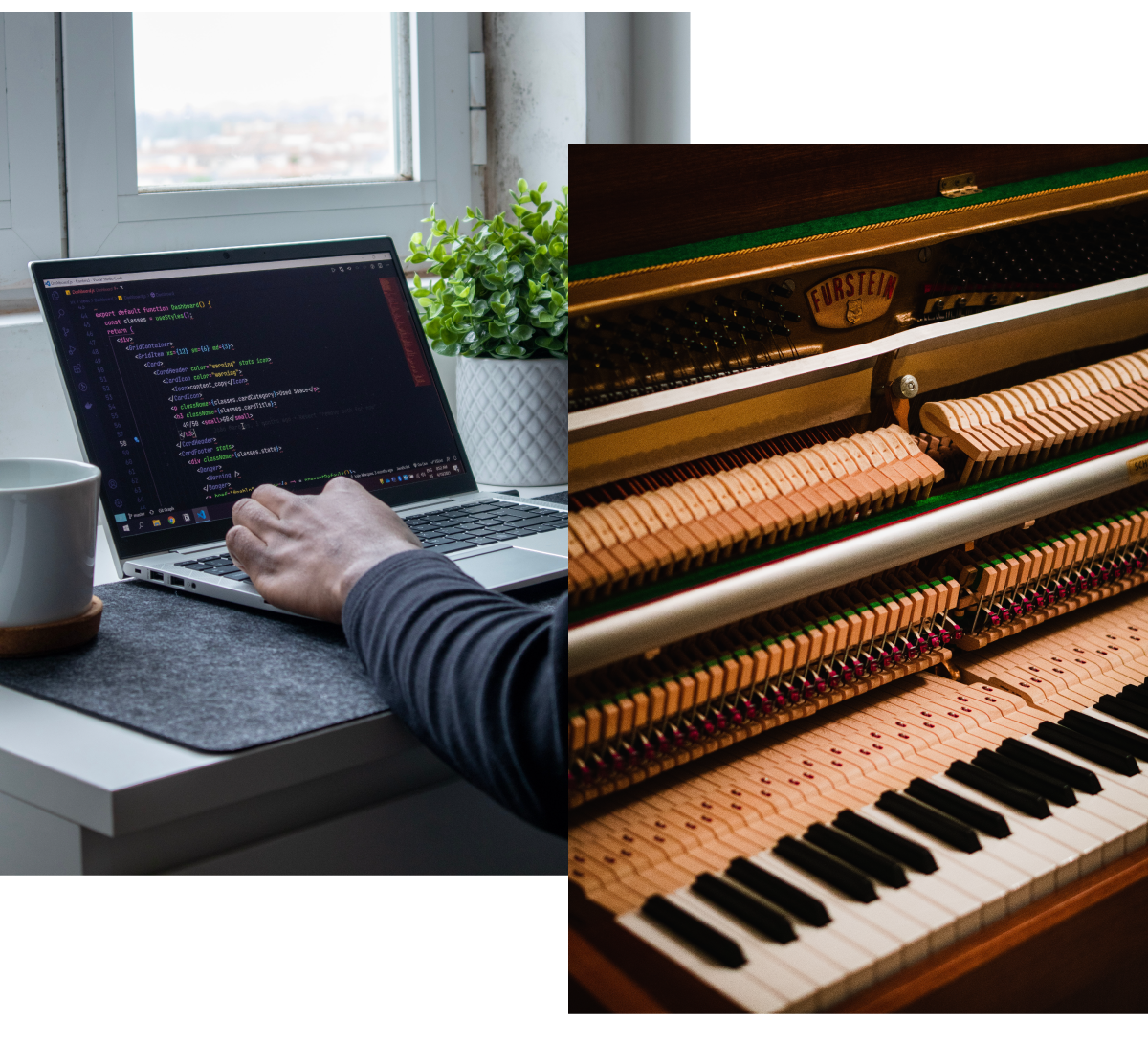
A Collaborative Effort
Students with any academic background can contribute to the MusEDLab VIP. The team draws from a variety of disciplines. Students study subjects like computer science, engineering, technology studies, writing, and publishing. Some students are experienced musicians, while one team member has never studied music but is minoring in Disability Studies. “Some are more on the artistic side. Others are strictly engineers,” notes Michael Zachor. He’s a Tandon senior who is simultaneously pursuing his master’s degree in Computer Science. “I’m a little bit of both,” he says.
In a team open to students from any year and major, mentorship plays a key role in getting everyone on the same page. For example, older students, who are more familiar with the project’s specific goals and technologies, help acclimate younger students. However, newcomers also step up to lead aspects of the project that align with their field of interest. “Even if you come in with no knowledge, there is a place for you,” promises Dennis Kuzminer. He is a Stern junior who joined the team two semesters ago as a developer. “Everyone is highly receptive and always willing to help.”
Get Involved
NYU has plenty of related opportunities for students itching to get involved with music technology, user-centered design, or accessibility research. The NYU Ability Project, a joint initiative with faculty from Steinhardt, Tandon, and Tisch, studies the intersection between disability and technology. Everyday Assistive Technology, Getting from Point A to Point B, and Designing for Creative Physical Computing explore similar subjects. In addition, there’s the Music and Audio Research Lab (MARL), the center for music technology research at NYU. They offer initiatives in machine learning, music cognition, spatial audio, and more. The weekly interest groups and the MARL talk series are open to undergraduates.
With so many ways to get involved, putting yourself out there is the most important thing you can do as an undergraduate, regardless of your current experience level. “When getting involved in research at NYU, I think interest, enthusiasm, and thoughtfulness go a lot further than having what you perceive to be the right skill set,” attests Willie. “If you are genuinely excited about the work, you will pick up the skills you need as you go along and find your own unique way to contribute.”

